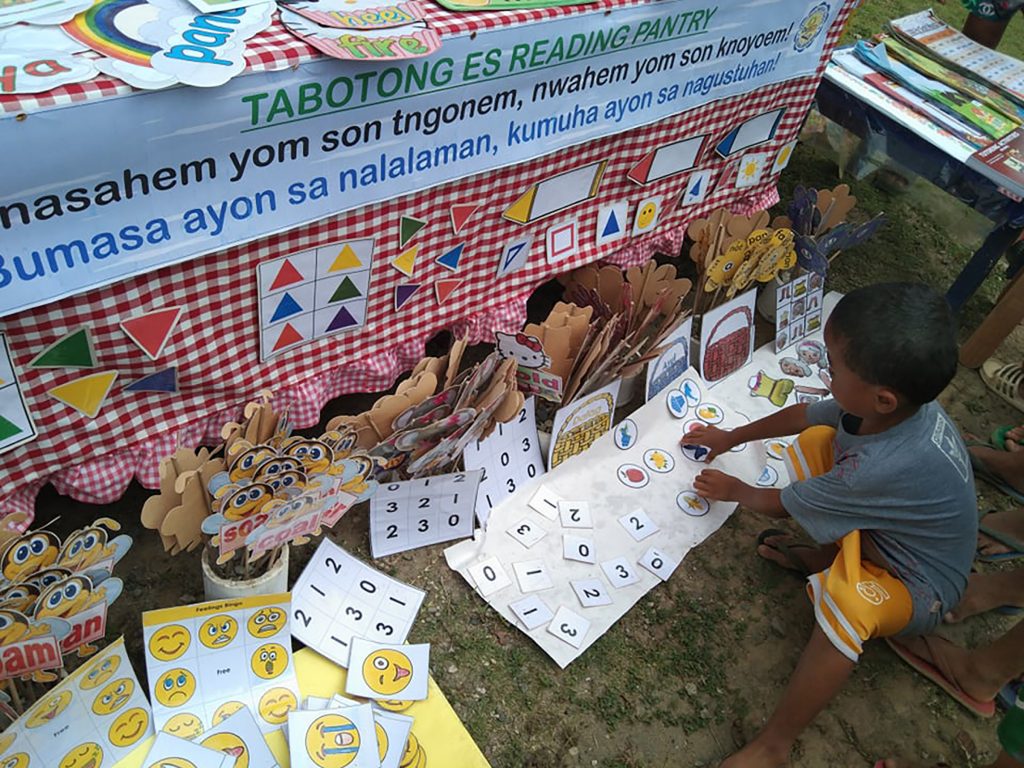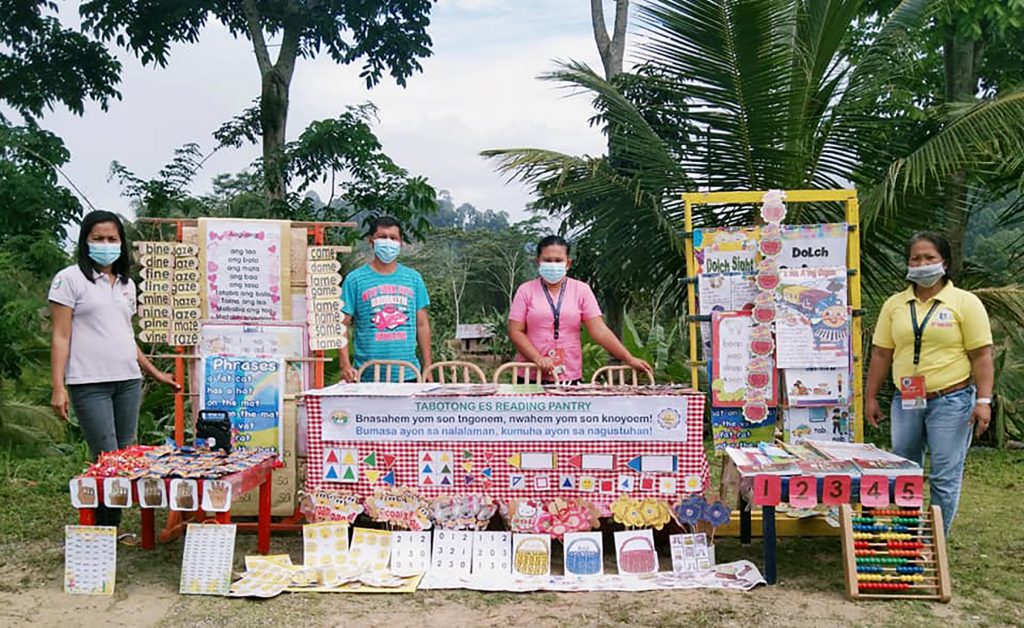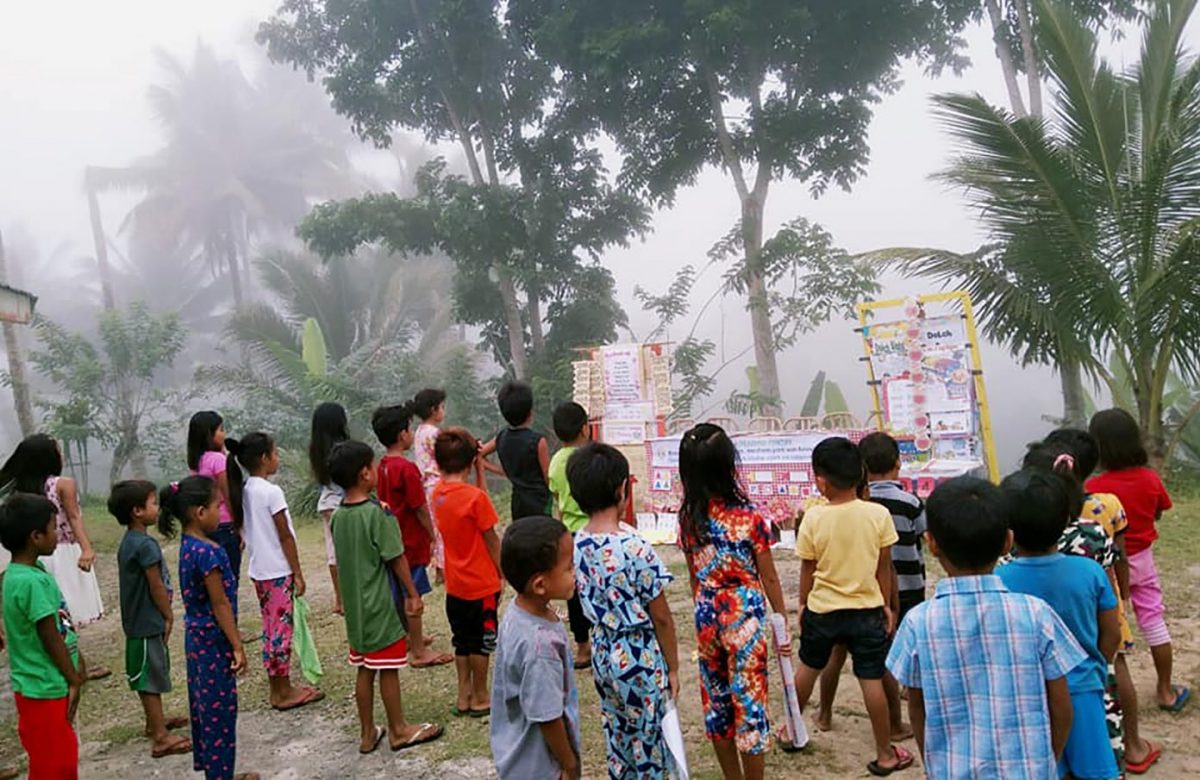As “community pantries” sprout like mushrooms in many parts of the Philippines, a school in the southern province of Sarangani launched its own version of a “pantry” — a “community reading pantry.”
John Paderal Constantino, coordinator of the Education department’s “Read at Home Program” in Sarangani, said the village school of Nalus in Kiamba town opened its “pantry” for young learners.
The initiative was started by Evelyn Vergara, head teacher of Tabotong Elementary School, to encourage learners to read and share available learning resources to the community.
Like the “community pantries,” a note was also posted in the “community reading pantry” in the T’boli language: “Bnasahem yom son tngonem, nwahem yom son knoyoem” or “Read according to what you know, take according to what you like.”
Vergara said the “community reading pantry” aims to provide opportunities to learners to utilize available learning resources in the village school.

Sheiryl Abo-abo, reading coordinator for the elementary school, said they pooled learning materials from the school while some were donated by people and the local government.
“We just keep on printing the reading materials and then give these to our volunteers who are assisting the young learners,” said Abo-abo.
She said some materials are given to learners who read faster.
The “community reading pantry” is open every Tuesday for learners from kindergarten to Grade 6.
“We are also giving away modest snacks to the children who would come to our community reading pantry to participate in the reading exercises,” said Abo-abo.
She said they also accept donations, even used books.

Constantino said the “community reading pantry” is part of the “Read at Home Program” initiative of the Sarangani Division of the Education department.
The volunteer-driven program aims to assist learners, particularly from kindergarten to the third grade level in the indigenous peoples communities.
Almost 40 percent of the learners in the province belong to indigenous communities and are in need of assistance because many of the parents are also struggling readers.







